How I overcame my fear of WeChat
26 June 2018
By now most Australians would know that the WeChat app is almost universally used among mobile phone users in China. In fact, we are starting to see WeChat Pay being used in many outlets visited by Chinese tourists in Australian cities.
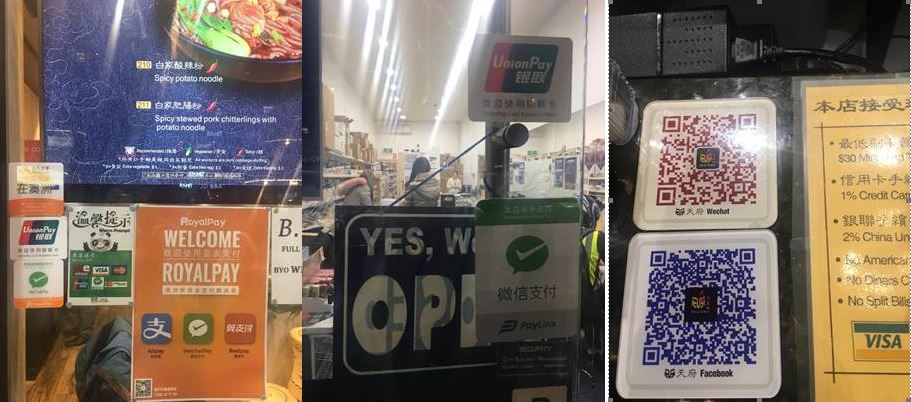
Restaurants and milk bars in Australia are adopting WeChat Pay. Credit: Asialink Business
I am a newcomer to WeChat. It took a while to get used to the app and its vast array of features since I joined barely two years ago. Like many Australians familiar with Facebook, Twitter and WhatsApp, I found it hard to relate to WeChat as a social networking app. But like any new technology, perseverance is the key. Once I understood that WeChat is more an ecosystem or operating system rather than just a simple messaging app, I began to appreciate its utility across a range of purposes.
For me, WeChat is primarily a messaging app. I use it to connect with my friends and colleagues, as well as contacts that I’ve made in the course of my work. In this sense, it’s like WhatsApp. Living in China, it is essential to have a WeChat account. If you don’t, you’ll miss out on a way of communicating with Chinese people and accessing the many features that make life easier. In fact, apart from face-to-face contact and phone calls, most of my communication with my Chinese friends is conducted through WeChat. I love the “translate” function in WeChat messaging – at a press of a button it will translate messages from Chinese to English!
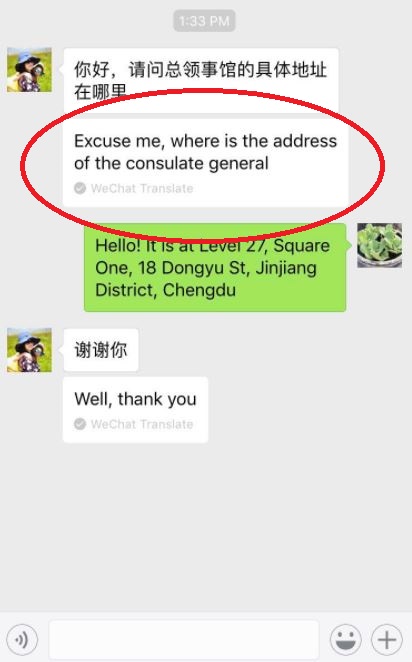
Instant translation at the push of a button
When you meet other people for the first time, an exchange of business cards is the norm. Now the practice has evolved to include being friends on WeChat. Many people even put their WeChat QR code on their business cards. “Do I scan you, do you scan me? (你扫我,还是我扫你? Ni sao wo, haishi wo sao ni?) has become the magic sentence that draws you closer to your contacts after a good meeting. Today, it’s not uncommon for you to have a friend’s WeChat details but not their mobile number.
You can leave voice messages on WeChat of up to 59 seconds, rather than typing text. And another good feature is that you can make free WeChat voice or video calls.
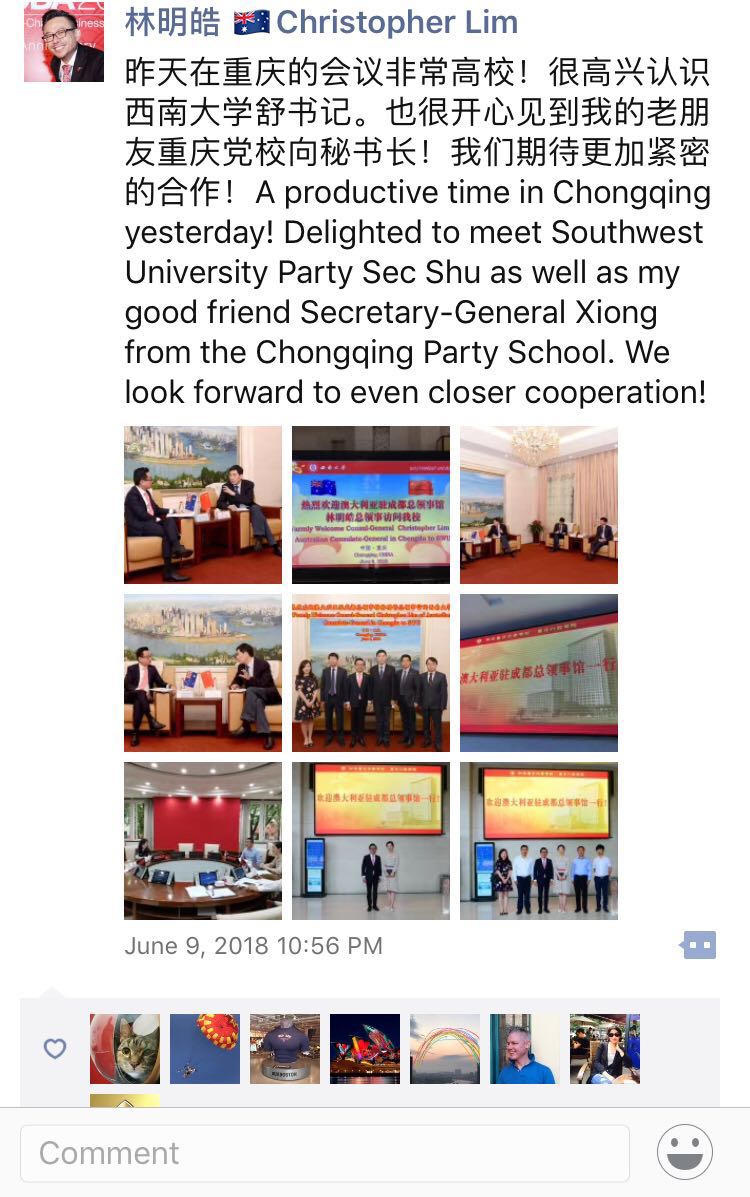
A recent update on Consul-General Christopher Lim's WeChat Moments
Furthermore, WeChat has a function similar to Facebook or Twitter in that you can post status updates that are visible only to your circle of friends. This function, called WeChat “Moments”, is a useful function that our Consulate-General has used to let audiences in southwest China know about Australia and promote the Australia-China relationship. Our account is mainly in Chinese (link). I also use my own WeChat Moments to let my circle of friends and contacts – both in Chinese and English – how I am strengthening links between Australia and southwest China, as well as my impressions of the region.
Probably the most the life transforming aspect of WeChat is its mobile wallet called WeChat Pay, which allows you to pay for nearly everything in China through the use of your personal QR code. In fact the Australian Consulate-General in Chengdu now accepts mobile phone payments through WeChat or Alipay for passport applications and notarial services. I don’t need to carry cash or a wallet in China anymore. Every vendor seems to accept payment via WeChat Pay or Alipay, even street vendors. In 2017, nearly US$32 trillion was transacted through mobile payments.
Pay for a healthy sweet potato – with WeChat Pay
It’s good to see more and more Australian retail outlets accepting WeChat Pay as a form of payment because most Chinese tourists would use WeChat Pay to pay for their purchases overseas if they could. Unfortunately, for Australian tourists traveling to China, WeChat Pay is only available to those who have a mainland Chinese bank account, but I hear that you may be able to link it foreign credit cards soon.
Beyond the above key functions, WeChat offers a plethora of features. You can buy movie tickets in WeChat’s mobile wallet. What’s more, the tickets are cheaper than buying them at the cinemas. You can reserve a table at a restaurant, access discounted menu options or order home delivery. McDonalds or KFC in China actively encourage customers to use WeChat or Alipay to order and pay. You can now apply for credit and bank loans, and even skip long hospital queues, via WeChat. And most interestingly, divorce through WeChat is currently being trialled!
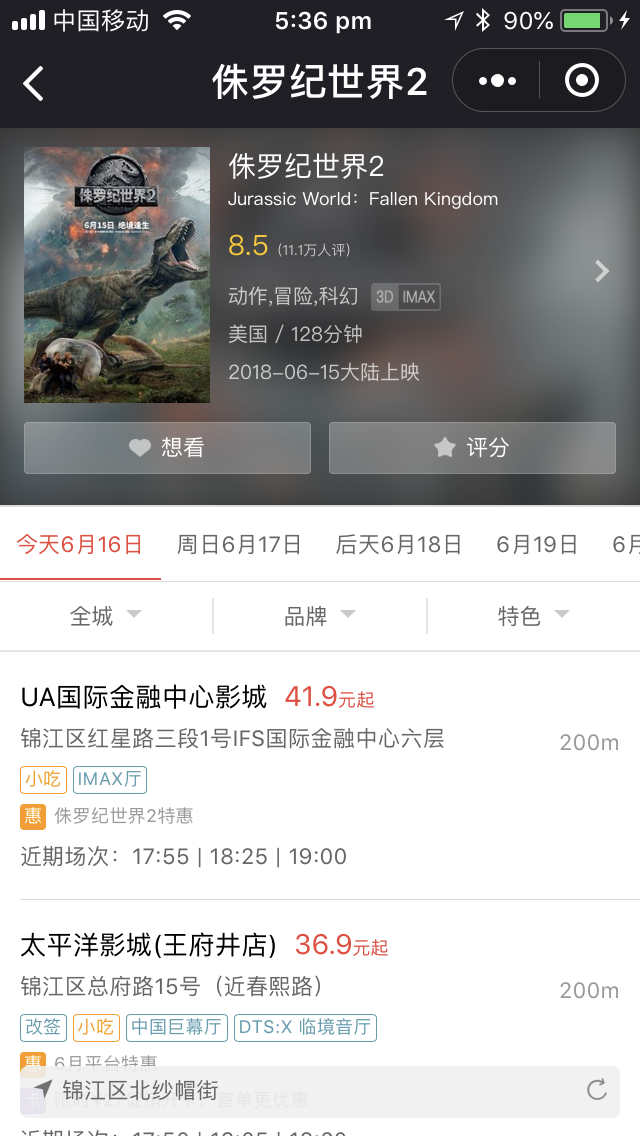
Movie tickets on WeChat Pay are cheaper than buying them at the cinema
The number of Chinese using WeChat is staggering. There are over one billion created accounts, with over 900 million using the app every day to communicate with friends and family, read news, buy goods and services, play games, obtain advice, check fitness levels, and interact with other WeChat users, including companies seeking to sell their products. In China, digital information is obtained overwhelmingly through the mobile phone rather than through desktop computers or laptops. Therefore, Chinese contacts are more likely to respond via WeChat than by email. I was pleasantly surprised to hear that three million people in Australia use WeChat. Within the Chinese community in Australia, WeChat is widely used.
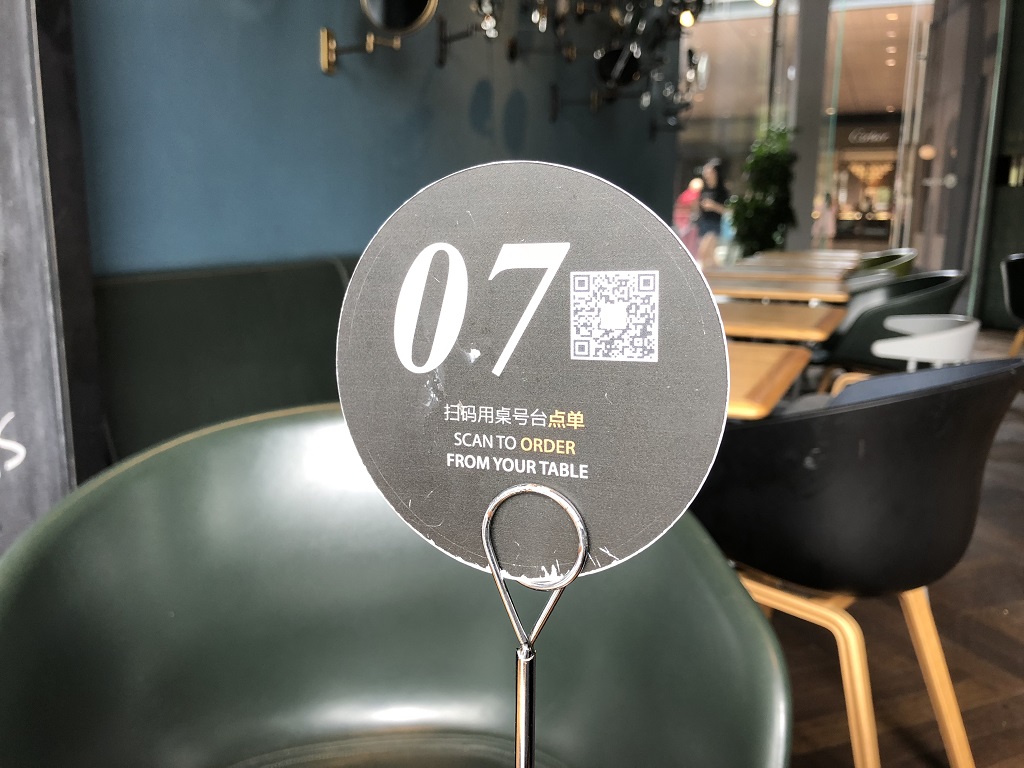
Scan to order your meal
WeChat is useful for Australian companies seeking to reach directly to Chinese consumers and Australians working in China. But like all new technology, it takes a while to get used to. By posting status updates on my WeChat Moments, I know through the many “likes” and comments that I am connecting with my Chinese friends. Using WeChat Pay is very convenient, and allows me to access many deals. After getting comfortable with its features, I have to say, WeChat can be addictive!
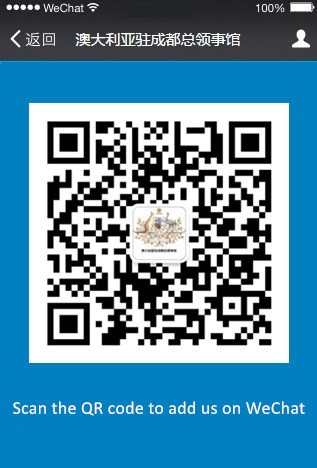
Scan this QR code to add the Australian Consulate-General in Chengdu on WeChat
Note: Mention in this blog about various technology and social media companies doesn’t imply support of them or their products. The intent of this blog is to provide a glimpse into the fast moving mobile social media space in China.
Click here to return to Australian Consul-General's Blog on Southwest China
